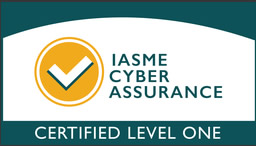Is your data safe? Data retention in automated audio transcripts
Unheard Risks: Data Retention Concerns in Automated Audio Transcription Services
In an era where voice recognition and automated transcription tools are becoming increasingly common—from academic research interviews to everyday meetings - the convenience of turning audio into analysable or searchable text comes with a significant and often overlooked concern: data retention and user privacy.
Automated audio transcription services typically work by uploading audio or video recordings to cloud-based platforms often linked to qualitative research tools, where advanced algorithms convert speech into written text. While these services offer speed and efficiency (maybe not accuracy so much), users may not be fully aware of what happens to their data once it has been processed. Who stores the data? For how long? And for what purpose?
Many service providers retain both the original audio and the transcribed text for quality improvement, such as training machine learning models to better recognise accents or improve punctuation. While this sounds benign, it raises a critical issue—informed consent. Users often click through terms of service without realising that their sensitive conversations may be stored, analysed, and potentially even shared with third parties, if they are not cognisant of all of these terms.
This is particularly concerning when transcription involves confidential, medical, legal, or commercially sensitive information. For instance, a departmental meeting recording discussing staffing concerns or behaviours or a clinician transcribing patient notes could unwittingly expose personal or proprietary data if it’s retained beyond its intended use. Even when names are not mentioned, contextual clues can make re-identification of individuals possible, something that researchers are all too aware of when spending time subsequently anonymising or pseudonymising data in the resulting transcripts. Moreover, data retention policies are not always transparent. Some services retain data indefinitely unless explicitly deleted by the user—something the average researcher may not know how to do, or even realise is necessary. Others anonymise data but fail to explain what "anonymised" means in practice, or whether re-identification is possible through AI-driven pattern recognition, again posing considerable threats to the integrity of the research as well as the research participant, patient or the wider team, depending on the context of the recording.
In regions covered by laws like the General Data Protection Regulation (GDPR) in Europe and UK, service providers are legally required to be transparent about data use and give users the right to access, correct, or delete their information. However, enforcement varies and many users remain unaware of their rights.
To mitigate these risks, organisations and individuals should carefully evaluate transcription services before use. Questions worth asking include: Does the service offer end-to-end encryption? Can data be processed and stored locally? Are there clear, user-friendly options to delete recordings and transcripts after use within the software platform used?
Additionally to ensure the safety, security and integrity of your research interview or group recording you should have a conversation with your data protection officer or data governance management team to establish if a Data Protection Impact Assessment has been carried out on a given software ahead of use to reassure both you and your participants' data is in safe hands.
Ultimately, the convenience of automated transcription should not come at the cost of user trust and data security, as we become more reliant on automation to speed up research or meetings, we must remain vigilant on safety and integrity of the precious commodity we value, namely our data.




